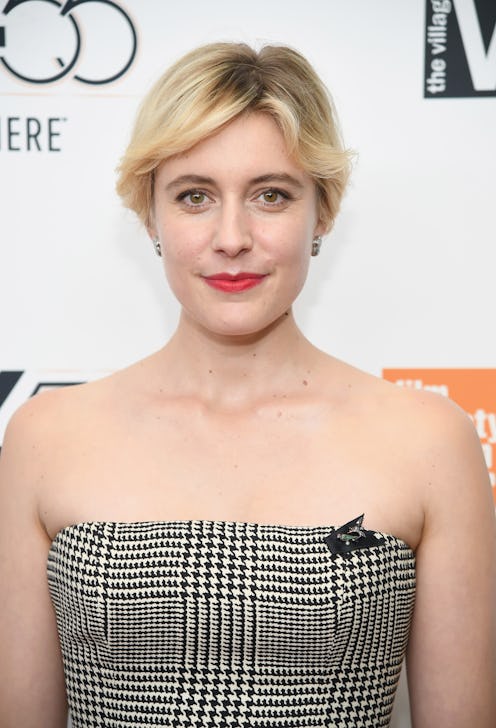Entertainment
Once Again, Women Were Snubbed In This Important Globes Category

Despite a year of films being made from a seriously diverse set of directors, the nominations for the Golden Globes weren't as inclusive as hoped for. Unfortunately, no female directors were nominated for 2018 Golden Globes, something that's surprising given the abundance of female directorial talent at the present moment. However, when you examine the history of the ceremony, this is actually depressingly normal.
But let's rewind: According to Variety, the nominations for Best Director — Motion Picture were assigned to Guillermo del Toro (The Shape of Water), Martin McDonagh (Three Billboards Outside Ebbing, Missouri), Christopher Nolan (Dunkirk), Ridley Scott (All the Money in the World), and Steven Spielberg (The Post). It's a line-up of talented men that should take you aback considering the sheer quantity of great films with female directors we've seen recently.
For starters, there's the fact that, according to USA Today, Greta Gerwig's directorial debut Lady Bird broke a record at the end of November for scoring an 100 percent Rotten Tomatoes review. It surpassed Toy Story 2, the film which previously held the record in terms of consecutive fresh reviews, scoring 164 consecutive positive reviews in comparison to the Pixar film's 163. It's hard to imagine omitting Gerwig as a director from this list, given Lady Bird's critical and popular reception. But the lack of inclusivity wasn't just about the Frances Ha actor's omission.
There was XX, the first ever horror anthology directed and written by just women. There was Patty Jenkins' Wonder Woman, which met with a rapturous reception, boasting a 92 percent fresh rating on Rotten Tomatoes, and which sold so many tickets that Forbes pronounced it “officially the highest-grossing superhero origin film.” Even Sofia Coppola, who according to IMDb scored a Golden Globes director nomination in 2003 for Lost In Translation, was passed over for her work on The Beguiled. Kathryn Bigelow, the first female director to win an Oscar in 2010 for The Hurt Locker, was also passed over for her 2017 film Detroit. And while both lead actors of Battle of the Sexes scooped up nominations, the film's directorial team Valerie Faris and Jonathan Dayton were overlooked.
The real tragedy of this is that it’s so completely predictable. When you review the best director nominations over the past five years, there have been years with no female directorial talent nominated whatsoever (see: the Golden Globe nominations for 2017, the nominations for best director in 2016 and the Golden Globe nominations in 2014). In 2013 and 2015, there was just one female director nominated in the category; in 2013, Kathryn Bigelow was given a nod for Zero Dark Thirty, while in 2015, Ava DuVernay received a nomination for Selma.
And this lack of representation in such award ceremonies potentially has very real consequences. A 2016-2017 report from the Center for the Study of Women in Television and Film at San Diego State University confirmed that there are declining numbers of female directors, reporting that women made up just 7 percent of directors working on the 250 highest-grossing domestic releases in 2016. This marked a dip of two percentage points from the 2015 statistics.
This isn't hand-wringing about nothing. After a year dominated by incredible films with female directors in a wide range of genres, this omission feels more noticeable than ever. Yes, this is business as usual for the Golden Globes. But this doesn't mean you should be OK with it. Tweet about it, write about it, talk about it. As the abundance of great women-helmed 2017 movies have proved, this isn't about women directors not being good enough. This is about their "good enough" not being good enough to get the awards recognition that comes so easily to the men.